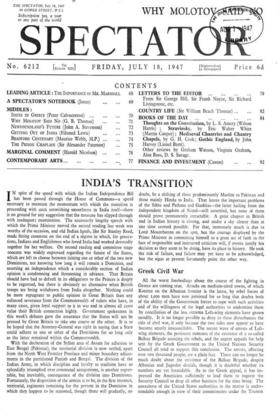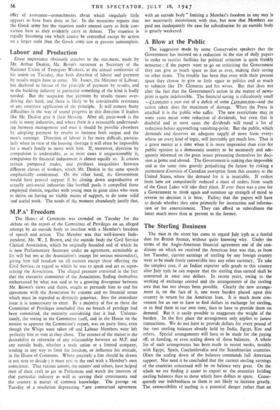Greek Civil War
All the worst forebodings about the course of the fighting in Greece are coming true. Attacks on medium-sized towns, of which Konitza on the Albanian frontier is the latest, by rebel forces of about i,000 men have now persisted for so long that doubts both of the ability of the Government forces to cope with such activities and of the willingness of the legal authorities to undermine them by conciliation of the less extreme Left-wing elements have grown steadily. It is no longer possible to deny to these disturbances the title of civil war, if only because the two sides now appear to have become utterly irreconcilable. The recent wave of arrests of Left- wing elements, the persistent rumours of the existence of a so-called Balkan Brigade assisting the rebels, and the urgent appeals for help sent by the Greek Government to the United Nations Security Council all tend to support this conclusion. The arrests, affecting over two thousand people, are a plain fact. There can no longer be much doubt about the existence of the Balkan Brigade, despite Albanian and Jugoslav denials, though it is doubtful whether its numbers are yet formidable. As to the Greek appeal, it has im- pressed the Americans sufficiently to lead them to request the Security Council to drop all other business for the time being. The uneasiness of the United States authorities in the matter is under- standable enough in view of their commitments under the Truman offer of assistance—commitments about which singularly little appears to have been done so far. In the meantime reports that the Greek anny has the situation under control carry as little con- viction here as they evidently carry in Athens. The situation is rapidly becoming one which cannot be controlled except by action on a larger scale than the Greek army' can at present contemplate.



































